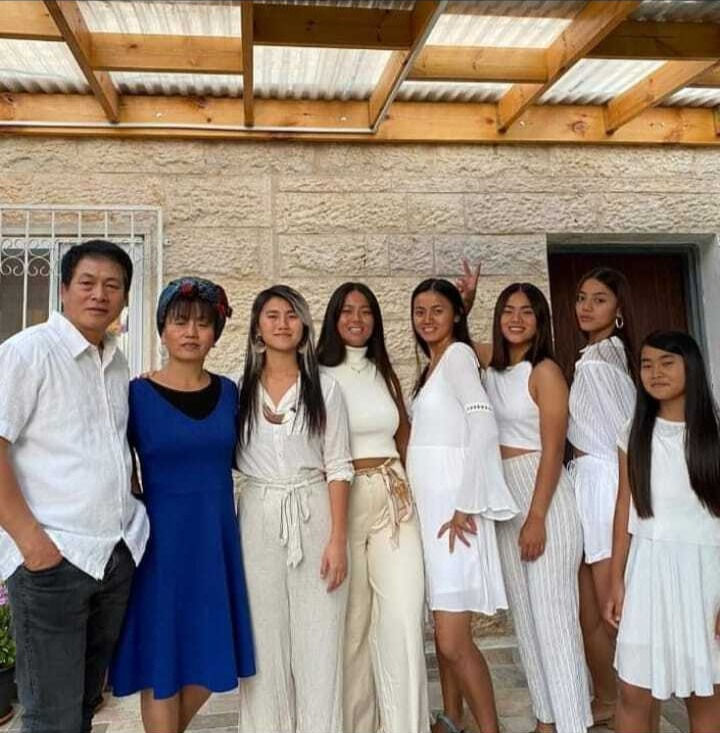(July 8) Shirel Lunkhel, 18, of Kiryat Arba may not have been thinking of the B’nei Menashe community of Israel to which she belongs when she was chosen to be her Border Guard company’s torch bearer last week at a ceremony ending several months of basic training. Yet the evident pride and joy with which she bore the torch in honor of being judged the company’s outstanding cadet, so fully reflected in her face and manner, have made her the pride and joy of the entire B’nei Menashe community as well.
Shirel is not the first B’nei Menashe girl to serve in the IDF. (Although the Border Guard is technically a branch of Israel’s police force, it is a combat unit fully integrated within the army’s structure.)

She was preceded by four others, including her two older sisters Yael and Adi, all Kiryat Arba neighbors who grew up together and influenced each other. All showed grit and independence of mind, since the Rabbinate and its educational institutions, which set the norms for the Orthodoxy that nearly all B’nei Menashe practice, prefer that young women wishing to serve their country enroll in its civilian National Service rather than in its military. It takes character to fly in the face of this.
“I never thought Shirel would join the army,” our Newsletter was told by her mother Rivka Lunkhel when she spoke with us over the phone from her Kiryat Arba home. (Shirel herself, in accordance with army rules, could not be interviewed.) “She was the fifth of our children, all girls, and the baby in the family until her sister Ilanit came along seven years after her. In our culture, youngest children are doted on. Though I wouldn’t say Shirel was spoiled by me, her father, or her older sisters, we did give her a great deal of attention and indulged her a lot. She has a very feminine nature, and after she finished high school I was sure she would opt for National Service. That seemed to suit her better than the army. ”

“Shirel was always on the delicate side,” her father Yehoshua agreed. “Army training is tough even for a young man. Shirel had doubts about it right up to the minute I dropped her off for the first time at her base.

She asked me if I thought she was doing the right thing. I told her that she should make good on what she had started. She had made her decision and now she should see it through. “To tell the truth,” Yehoshua went on, “I never believed Shirel would accomplish what she did. She’s my daughter and I know her well. Had she just managed to get through basic training without dropping out, I would have considered that an achievement. I couldn’t help worrying about her and wondering whether she shouldn’t have sought placement at some army desk job rather than in a combat unit. Her coming out at the top of her company totally surprised me.”
Yet Shirel always has had a lot of determination, says her mother. “I watched her grow up. She’s not at all aggressive, but once she makes up her mind to do something, she does it. Although I was also surprised when she chose the Border Guard, I didn’t say anything. In Israel, children make their own decisions. It isn’t like India, where their parents decide for them. At the end of Shirel’s training, she was at the top of her unit, and I’ve been told that she’s been offered a place in an officer’s training course. Even though she hasn’t made up her mind about it yet, that’s still a big honor. Whatever career she chooses in the future, this is a good beginning.”
Yehosuhua Lunkhel agrees. “It made us proud to see Shirel come through basic training with such flying colors,” he says. “If she goes on to be an officer, we’ll be even prouder.”
As will be the entire B’nei Menashe community.






